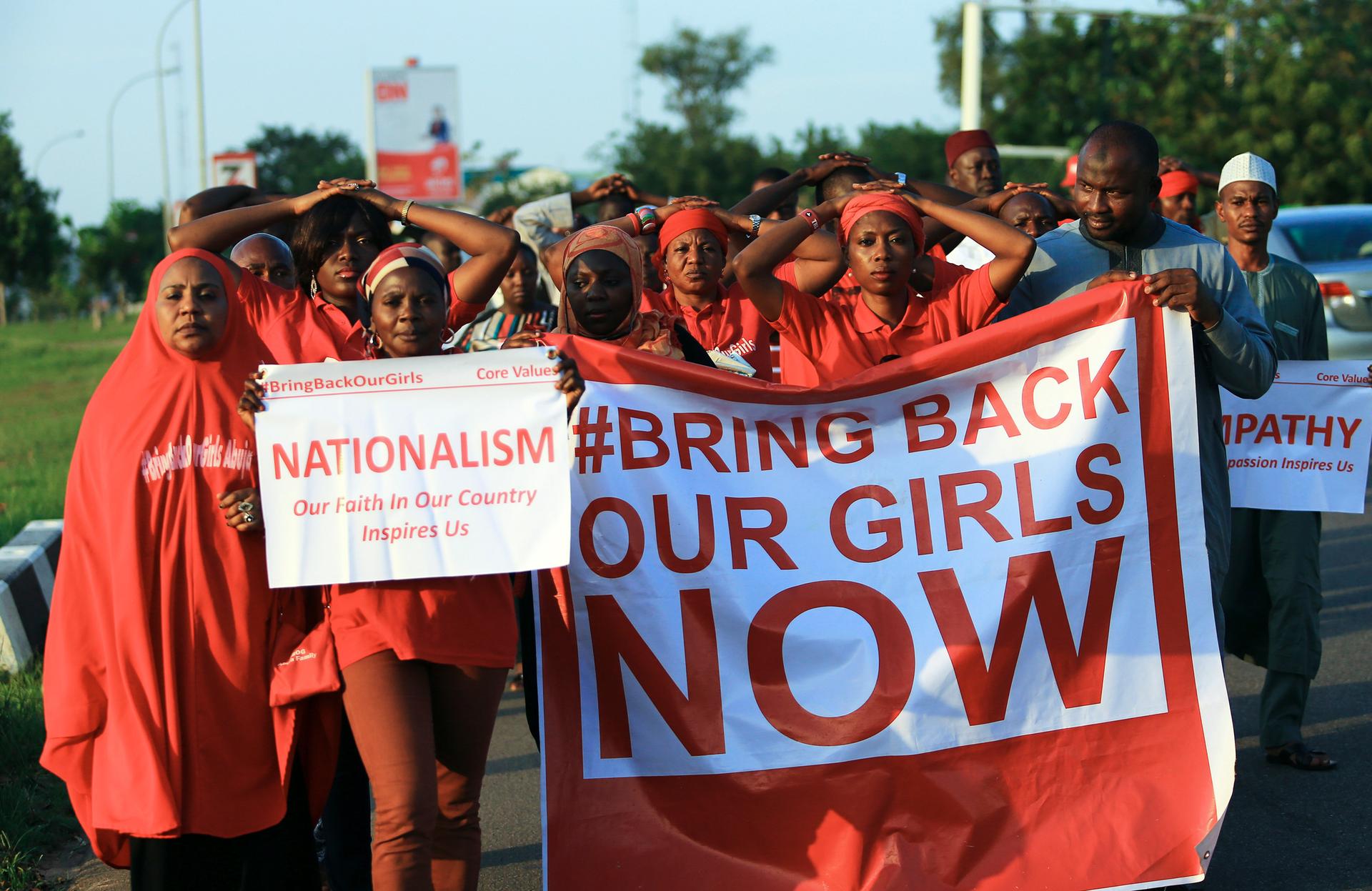"#BringBackOurGirls" campaigners participate in a lamentation parade in Abuja, as more towns in Nigeria come under attack from Boko Haram, November 3, 2014.
In April 2014, armed men from Boko Haram came out of the night to the residential school for girls, in Chibok, in northeastern Nigeria. When they left, the militants took almost 276 of the students with them.
A handful escaped, but the rest vanished into the night.
An international campaign began to #BringBackOurGirls.
But 20 months later, almost nothing is known about what happened to them. Boko Haram is an extremist group, that’s now affiliated with ISIS. Its name means "western education is forbidden."
This week, Nigeria’s president, Muhammadu Buhari offered to open talks with the rebels, without pre-conditions, to try to win the release of the girls. But he also acknowledged that there is not a single reliable intelligence report about where they are or what happened to them.
“All that we know,” says the BBC’s Abdullahi Kaura Abubakar, “is that on the day the abduction took place, over a dozen of them were able to escape. But after those ones, there have not been others that managed to escape. There are more than 200 of them that are still in captivity. All we hear are reports of them being separated; being kept in different places; some of them have been married off to members of the militant group; we hear that some of them are already bearing children; some of them have died from snakebites; some of them were sick. These are all the stories we’ve been hearing. But nobody can really say whether or not they are really true.”
Boko Haram uses abductions to recruit. “The young men are conscripted to become fighters, while the girls became their wives or sex slaves, and even some of the abducted girls become fighters themselves.”
Abubakar says negotiations are always possible, but trust is an issue. The previous government used an offer of ceasefire talks to lure Boko Haram leaders into the open where they were arrested or killed.
Our coverage reaches millions each week, but only a small fraction of listeners contribute to sustain our program. We still need 224 more people to donate $100 or $10/monthly to unlock our $67,000 match. Will you help us get there today?
